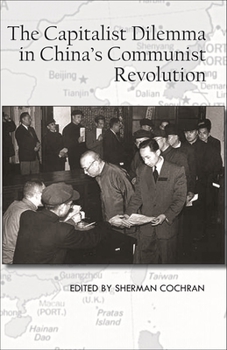The Capitalist Dilemma in China's Cultural Revolution
Select Format
Select Condition 
Book Overview
How can capitalists' motivations during a Communist revolution be reliably documented and fully understood? Up to now, the answer to this question has generally eluded scholars who, for lack of nonofficial sources, have fallen back on Communist governments' official explanations. But the essays in this volume confirm that, at least in the case of the Communist revolution in China, it is finally possible to make new and fresh interpretations. By focusing closely on individuals and probing deeply into their thinking and experience, the authors of these essays have discovered a wide range of reasons for why Chinese capitalists did or did not choose to live and work under communism. The contributors to this volume have all concentrated on the dilemma for capitalists in China's Communist revolution. But their approach to their subject through archival research and rigorous analysis may also serve as a guide for future thinking about a variety of other historical figures. This approach is well worth adopting to explain how any members of society (not only capitalists) have resolved comparable dilemmas in all revolutions--the ones in China, Russia, Vietnam, Cuba, or anywhere else.





